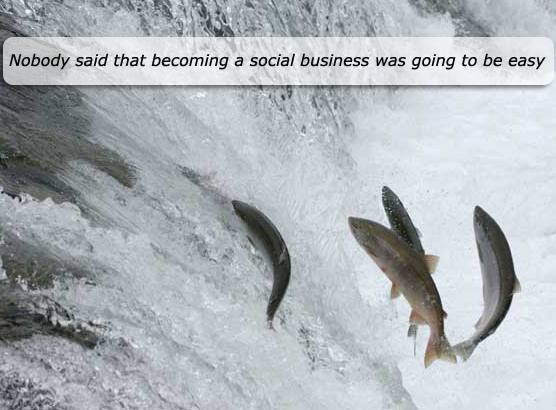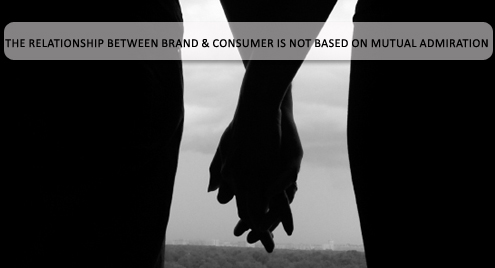
Why do you think some organizations struggle with becoming a social business or a social brand?
Simple as this. Relationships. They are critical to external organizationl success both at the lowest levels and the highest levels. Just as internal relationships are important in maneuvering through the maze of most Fortune 500’s and getting things done, in the digital world, especially in social media, your networks and the relationships that you have within and without, can make or break any social-digital intiative that you have going.
Whether its with coworkers, colleagues or customers-relationships, the creation of and the fostering of them will actually determine your organizational, departmental and personal success in social and digital.
At it’s core- it goes back to silos. You need to recognize them and maybe… embrace them. Silos don’t work but they still do exist. Why do they exist? Traditional business structures. Command and control. Politics. The way things have always been. Silos are the reason why sometimes social takes awhile to permeate large organizations. Picture salmon swimming upstream. It takes a while for them to get there because they are going against the current. In social, we’re all salmon. We’re headed in the right direction, it’s just tough sledding right now. Social is a struggle.
So why do organizations struggle with rolling out social? Unless it’s a top down edict from the C-suite, whoever the internal champions of social are, they will find that beyond having a compelling case, a strategy, a plan and tactics, what really will determine them going forward will be one of 2 things: 1) Their internal allies and their internal relationships with other departmental heads or 2) A catastrophic, game changing, reputation damaging event that happens via social.
Org.’s struggle because the advocates of social find that swimming with the current is much easier than trying to get internal buy-in, getting someone to change course, change direction, and think differently and do it differently just based on a notion or based on the mere fact that everyone may be doing it.
Social is still new. Hard to even say that anymore but it’s true, it’s still new. It requires you to step out of a comfort zone. It requires you to go beyond the insulation of heads down work. It demands that you look up. Social is busting down the notion that just doing good work can be sufficient and can be the determinant of success. But creating a sea change in an organization and becoming a social business is going to require a marriage of the old school and the new school. It’s hard and it requires the forging of relationships.
That doesn’t mean that NOT becoming a social business is the death knell, it just means that eventually if you don’t adapt-you will be the fish swimming downstream when all the others are going in the opposite direction. Have you ever tried getting someone to take the road less traveled?

